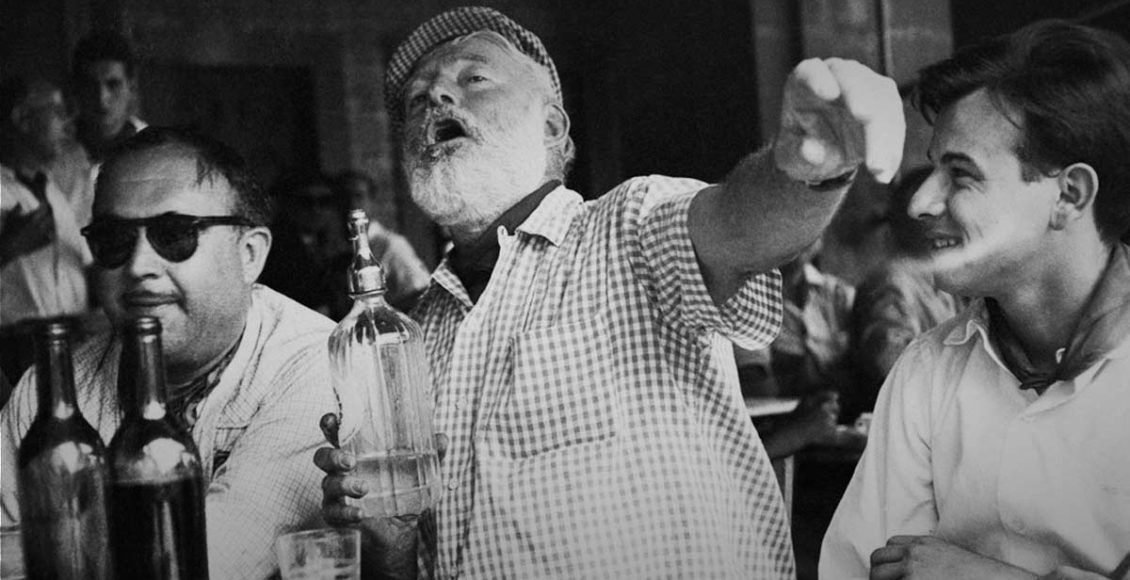Alcohol – al kohl – this word is Arabic in origin, and is literally translated as “body eating spirit”.
People discovered alcohol accidentally probably while eating overripe or rotten fruit. Naturally, fermentation of sugars results in the production of ethanol. Nevertheless, ethanol alcohol in these fruits is at a pretty low level of around 5%. That could compare to the alcohol in a light beer. While for instance, the normal beer contains 4-6% of alcohol, wine 12-15%, and distilled spirits 20-95%.
The accidental drinking of alcohol continued approximately to 10,000 years ago.
It was then replaced by the production of beer and wine which had taken place for the first time in Mesopotamia. The distilled spirits are more “modern” as they were discovered in the Middle East or China at about 700 AD.
But what’s interesting about drinking alcohol is that it is thought to be the latest evolutionary novelty in the development of humans’ behavior and is a sign of stronger intellectual capacity and this is also confirmed by a recent study.
The study was conducted in the London School of Economics on people at the age of 39. It revealed that women who had obtained higher educational degrees drank twice more on a daily basis than the ones who hadn’t studied at university.
Almost the same goes for men. The research discovered that educated ladies were 71 % more predisposed to drink on most days. And educated men were 49 % more likely to consume alcohol.
And that’s not all.
According to the Savanna-IQ Interaction Hypothesis posited by evolutionary psychologist Satoshi Kanazawa, situations that did not occur in the Pleistocene (when homo sapiens developed) are hard for our brain to handle especially for the less intelligent. This is the case because general intelligence has developed as a consequence of the need to solve evolutionarily new problems.
And alcohol consumption also falls into that category so this rule could prove there’s a link between intelligence and drinking.
As previously mentioned the alcohol production appeared as recently as 10,000 years ago.

And this tendency continues during the teenage period.
The most intelligent kids consumed almost 80% more alcohol than the “very dull” as presented in the chart below.

The same goes for Americans – the brighter they were as children, the more alcohol they consumed as teenagers. In the graph below are shown the findings of the National Longitudinal Study of Adolescent Health (Add Health) in the United States.

The scientists took into consideration some external factors. They analyzed the social class of the children and the education of the parents.
Although intelligent individuals really drink more, researchers came to the conclusion this is not related to their social status.
Neither has it anything to do with whether they had “important” jobs. In fact, it was their intelligence itself which made them consume more alcohol.
Another proof of this idea comes from Finnish researchers who examined 3,000 fraternal and identical twins to conclude that the one who first started using language—also would drink alcohol first and drink more as a teenager. Generally, verbal skills are associated with social intelligence; that’s why twins who were more talkative also had more friends and were more likely to become involved in situations in which people drink.
Earlier speaking could also indicate the child will have higher academic results later in life. But obtaining higher degrees of education is linked to higher alcohol consumption. The authors of the study think the reason is that intelligence is associated with curiosity and the passion for new experiences:
“Cognitive performance and reading abilities in childhood are related to higher stimulation-seeking tendencies.”, according to them.
Lastly, it turns out that smarter individuals prefer drinking wine. A study analyzed the IQ of nearly 2000 Danish men and their drinking preferences from the 1950s until 1990s. The scientists concluded that there exists a link between high IQ in young adults and drinking wine (not beer) when they grow older. Almost 40% of the men with the highest IQ scores and just 13 % with the lowest, preferred wine. These results could be explained with the relationship between how well someone’s paid, their level of education, social status, and intelligence.


